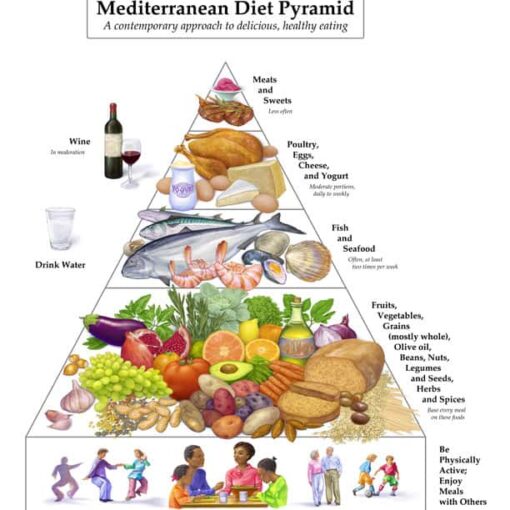
Less Guilt And Shame!
Mindfulness meditation can be particularly helpful in curbing emotional and stress-related eating. By becoming more aware of your thoughts and emotions, you can recognize those times when you eat because you’re stressed, rather than hungry.
It’s also a good tool to prevent you from falling into the harmful spiral of shame and guilt that some people fall into when trying to change their eating habits. Mindfulness meditation involves recognizing your feelings and behaviors for what they are, without judging yourself.
This encourages you to forgive yourself for making mistakes, such as stress-eating a bag of potato chips. That forgiveness can also prevent you from catastrophizing, which is a fancy term for what happens when you decide to order a pizza since you already “screwed up” by eating a bag of chips.

What Are The Benefits Of Meditation For Weight Loss?
Meditation won’t make you lose weight overnight. But with a little practice, it can potentially have lasting effects on not only your weight, but also your thought patterns.
Sustainable Weight Loss.
Meditation is linked to a variety of benefits, in terms of weight loss, mindfulness meditation seems to be the most helpful. Existing studies found that mindfulness meditation was an effective method for losing weight and changing eating habits.
Mindfulness meditation involves paying close attention to:
- where you are
- what you’re doing
- how you’re feeling in the present moment
During mindfulness meditation, you’ll acknowledge all of these aspects without judgment. Try to treat your actions and thoughts as just those, nothing else. Take stock of what you’re feeling and doing, but try not to classify anything as being good or bad. This becomes easier with regular practice.
Practicing mindfulness meditation can lead to long-term benefits, too, compared to other dieters, those practicing mindfulness are more likely to keep the weight off.

What Is Meditation?
Meditation is a practice that helps to connect the mind and body to achieve a sense of calm. People have been meditating for thousands of years as a spiritual practice. Today, many people use meditation to reduce stress and become more aware of their thoughts.
There are many types of meditation, some are based on the use of specific phrases called mantras. Others focus on breathing or keeping the mind in the present moment. All of these methods can help you develop a better understanding of yourself, including how your mind and body works.
This increased awareness makes meditation a useful tool for better understanding your eating habits, which could result in weight loss.
It Encourages Healthier Food Decisions.
Stress eating is normal, to an extent! We all know the feeling of enjoying a cupcake after a long day, but there’s a big difference between eating your emotions and eating because you’re truly hungry. Food and mental health go hand in hand, people often eat when they are stressed, bored, sad, or depressed. Meditation techniques, such as single-tasking or staying present, help you redirect in those moments, they can even decrease binge eating and emotional eating.
Be present to what you’re putting into your body, rather than that habitual burger or pizza, you can train yourself to make better food decisions. Too many of us grab a quick meal, or worse, fast food, and run through a short lunch. Actually slowing down, making healthy choices, and then eating your meal slowly versus wolfing it down has tremendous benefits. Slowing down during meals helps the brain to recover from always-on mode, but it also helps recognize when you’re full. When the mind is present, it’s easier to avoid that second helping.




